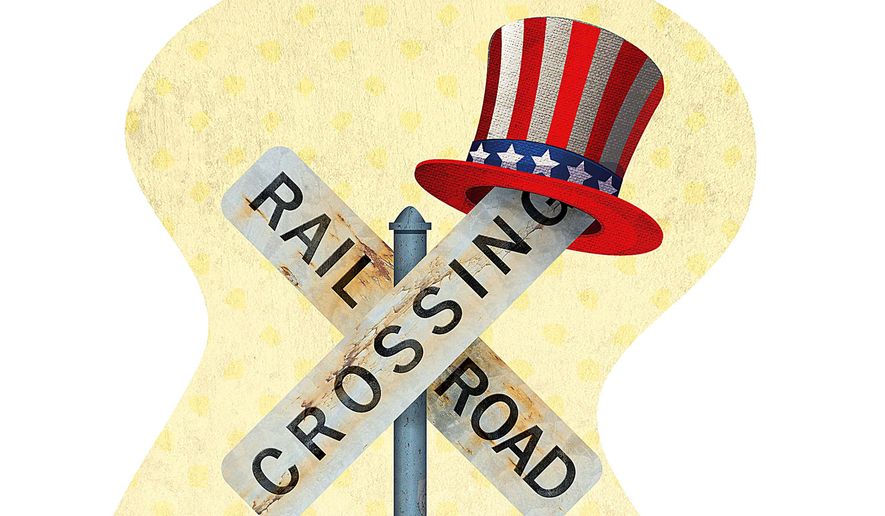OPINION:
The U.S. freight rail system is facing one of its greatest threats in a generation, as the federal Surface Transportation Board considers far-reaching proposals to reregulate American railroads.
A handful of large companies is lobbying for the changes, which are nothing short of a cynical backdoor effort to lower transportation costs at the expense of a healthy freight rail industry that balances the needs of a broad spectrum of customers.
Using the levers of government to impose price controls would put economic handcuffs on railroads, restraining their ability to generate necessary revenue needed to expand capacity and further modernize a rail system essential to thousands of companies across the U.S. economy and vital to U.S consumers.
The reregulation proposals are all the more disquieting given the role played by regulations in causing the financial depths from which the industry rose. One of the nation’s great economic success stories is the resurrection and subsequent flourishing of private U.S. freight rail companies, many of which were in bankruptcy.
The rebirth of freight railroads was not solely a function of business acumen. The success is due to the foresight of thoughtful government leaders who stood aside and unleashed the transformational power of the marketplace through partial deregulation.
That partial deregulation 35 years ago laid the foundation for the industry’s success. It enabled rail productivity to surge, leading to lower rates that attracted large volumes of new traffic, with freight rail competing head-to-head against other modes of transportation such as trucking, pipelines, air cargo and shipping.
The combination of ample cash flows and efficiencies created a transportation powerhouse that propelled other U.S. industries and the gross domestic product to new heights. For example, the resurgent railroads made possible the rapid growth in intermodal containerized transportation, which have facilitated remarkable growth in U.S. trade across multiple industries. Railroads also have played a key role in allowing domestic oil production to flourish and U.S. energy independence to soon become a reality.
By providing safe, reliable and cost-effective transportation for goods and services, U.S. freight rail became the envy of the world. And through its massive investment in rail infrastructure, $575 billion in the last 35 years, the freight rail industry is considered an exemplar of how private companies can provide sweeping public benefits.
Following partial deregulation, subsequent federal involvement in rail economics honored the belief that a developed nation required a top-notch freight rail system to enable economic growth — and that it was best provided by private companies in control of their resources rather than government. One constancy over numerous sessions of Congress and multiple presidential administrations has been the view that the global superiority of U.S. freight railroads is a direct result of a balanced system of regulation that relies on market-based competition, with a regulatory safety net available to rail customers who might need it.
The Surface Transportation Board should think twice as it ponders disrupting the delicate balance of today’s regulations. The danger of the reregulation proposals under consideration is that they would create an uneven playing field that undermines the industry’s ability to compete against other modes of transportation — by forcing railroads to open up their private property to competitors, or by setting artificially low rates for politically connected shippers.
This is not an arcane inside-the-Beltway squabble with little importance beyond the nation’s capital. Ordinary Americans should be deeply concerned. Not allowing the market to set prices for rail services would mean a return to the mindset of the 1970s, when freight rail was on the ropes and rail infrastructure was a dilapidated mess, when freight rail service for American companies was inconsistent at best and far from cost-effective.
If America wants to remain a global economic leader, if U.S. government officials want to ensure energy independence, if U.S. companies want to ship their products to new markets and create American jobs, then the message to the Surface Transportation Board is clear: Don’t reregulate freight rail — let rail compete.
• Edward. R. Hamberger is president and CEO of the Association of American Railroads.




Please read our comment policy before commenting.